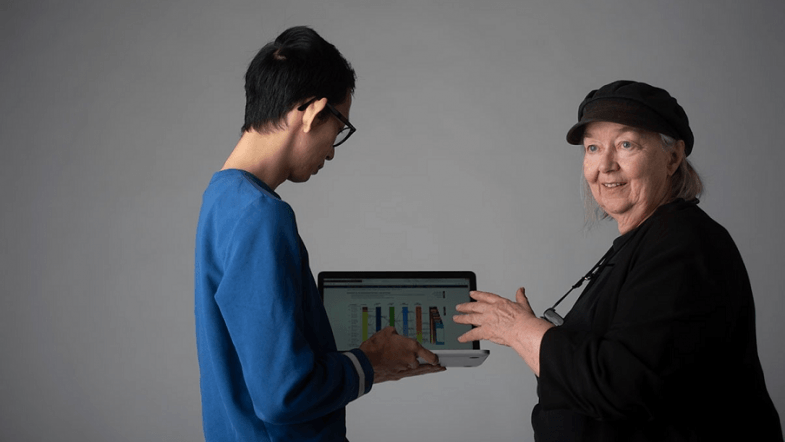Visualizing data to empower individuals

Sponsored by

Big data has the potential to change and improve our world—yet understanding and manipulating these massively complex data sets is still far from simple. Simon Fraser University computing scientist Sheelagh Carpendale says this massive data proliferation is revolutionizing how information is available. It is increasingly presented as data, and not everyone feels comfortable understanding data.
“A democratic society is based on an informed citizenry,” she says. “We are in danger of creating a new elite, dividing those who understand data from those who do not. In my research, I work toward leveling the playing field."
For 25 years, Carpendale has pioneered innovative information-visualization techniques that help people more easily access, understand and use data to make better decisions.
Her education—in art and design as well as a BSc and PhD in computing science—informs her unconventional approach based on people-centred observations. She pushes boundaries as she strives to develop accessible, inclusive and comprehensible interactive visualizations for all of us, paying attention to the needs of individuals as well as public- and private-sector organizations.
An internationally acclaimed leader in her field, she held two national research chairs simultaneously and in 2019 was inducted into the prestigious IEEE Visualization Academy after winning its 2018 visualization career award. Her current impactful research includes working with the United Nation’s World Health Organization to visualize its 11th international classification of diseases, and using visualisation to create an interactive search interface for AskNature’s data about co-functionality in biology.
Simon Fraser University’s School of Computing Science is mobilizing brilliant minds to create business and societal innovation for good. For more information, visit sfu.ca/csresearch.

